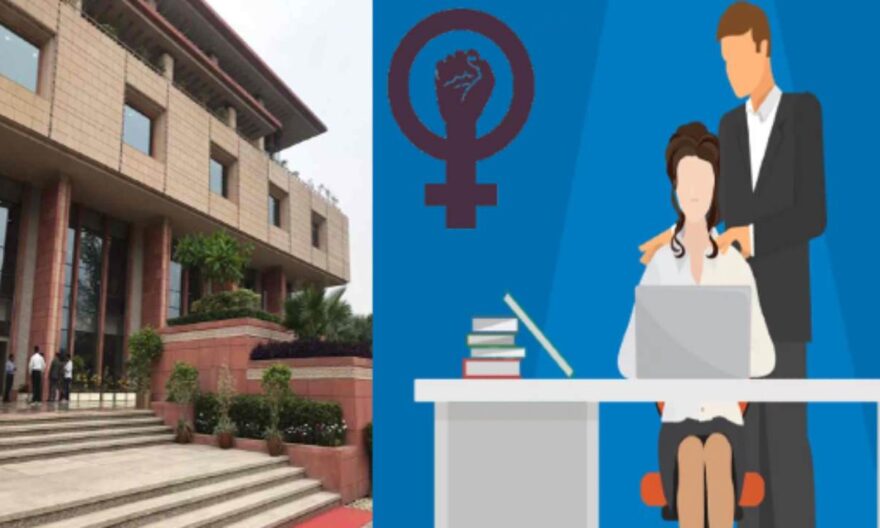
The Delhi High Court recently held that the Sexual Harassment of Women at Workplace (Prevention, Prohibition and Redressal) Act, 2013 (PoSH Act) applies even when the complainant and the harasser work in different departments.
A division bench of Justice C Hari Shankar and Justice Manoj Jain emphasized that the PoSH Act is not limited to harassment between employees within the same office but extends to instances where the offender is employed elsewhere.
The Court highlighted that any interpretation limiting the scope of the PoSH Act to intra-departmental cases would undermine the essence and purpose of the statute. It stressed the constitutional imperative of gender equality and the need for a safe working environment for women, emphasizing that even the apprehension of compromising women’s safety is unacceptable.
The High Court made these observations while addressing a plea filed by Dr Sohail Malik, an Indian Revenue Service (IRS) officer, challenging a meeting notice issued by the Internal Complaints Committee (ICC). The petitioner argued that the ICC of one department cannot initiate an inquiry under the PoSH Act against an officer from another department.
Rejecting Malik’s argument, the Bench held that Section 11(1) of the PoSH Act does not restrict its application to cases involving employees within the same department. The Court further clarified that the definition of ’employer’ under Section 2(g)(i) of the PoSH Act should be interpreted to include the employer of the department where the alleged harasser is employed. Therefore, if the employer with disciplinary control over the accused is from a different department, the ICC’s findings can be forwarded to that employer for appropriate action.
Consequently, the High Court refused to quash the ICC notice and upheld the decision of the Central Administrative Tribunal (CAT). Senior Advocate Arun Bhardwaj, along with Advocates RK Saini, Nishant Bahuguna, and Usha Sharma, appeared for the petitioner, while the Central Government Standing Counsel (CGSC) Vineet Dhanda, along with Advocates Vinay Yadav and Gurleen Kaur, represented the Union of India.




